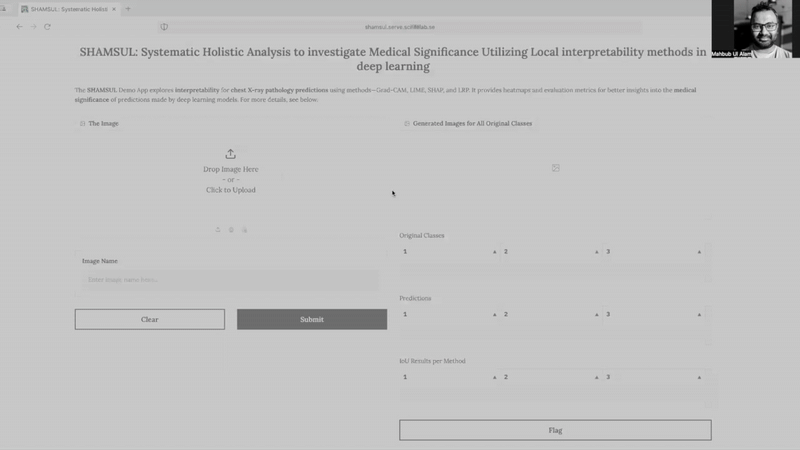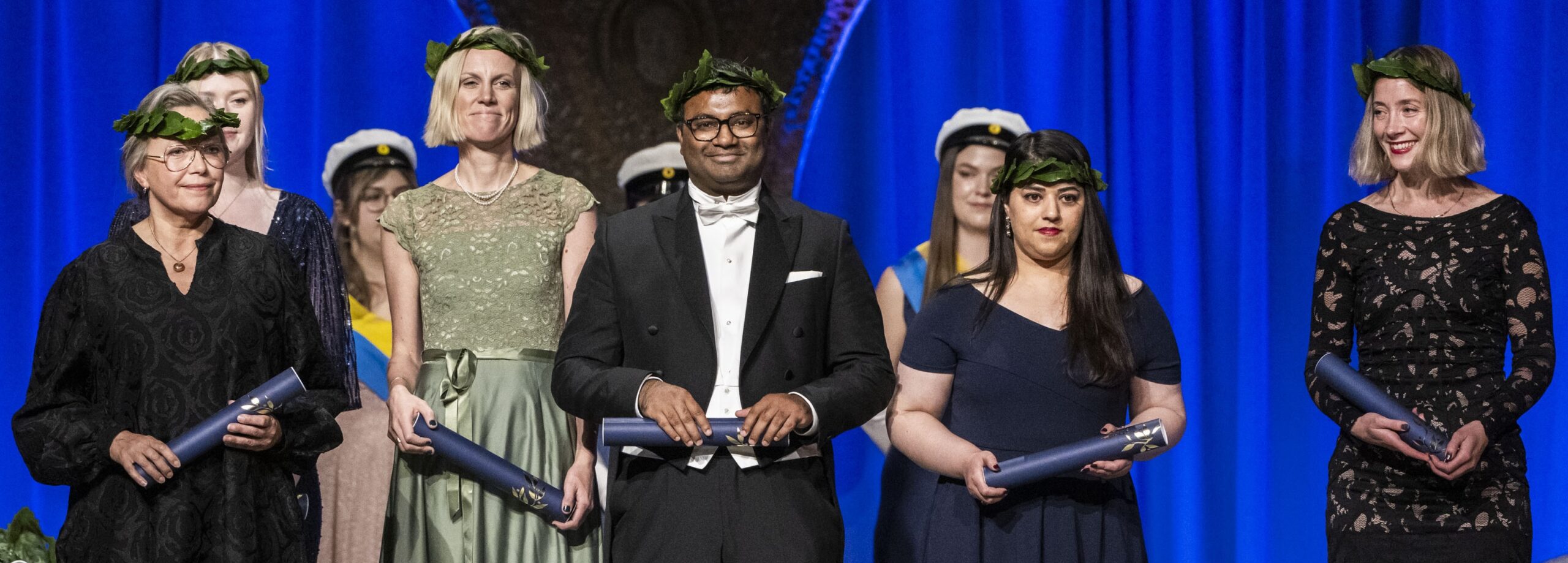I completed my PhD at Stockholm University (2018-2024), where I focused on making AI in healthcare both practical and easy to understand. My work connects clinical data with medical imaging to help doctors spot early signs of sepsis and COVID-19. Feel free to take a look at my papers, presentation materials, and an interactive demo linked here.
My PhD stories 🤓
Click each image or caption to read the story behind it!
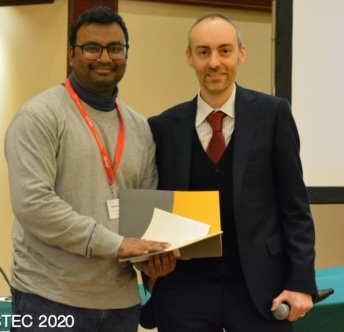
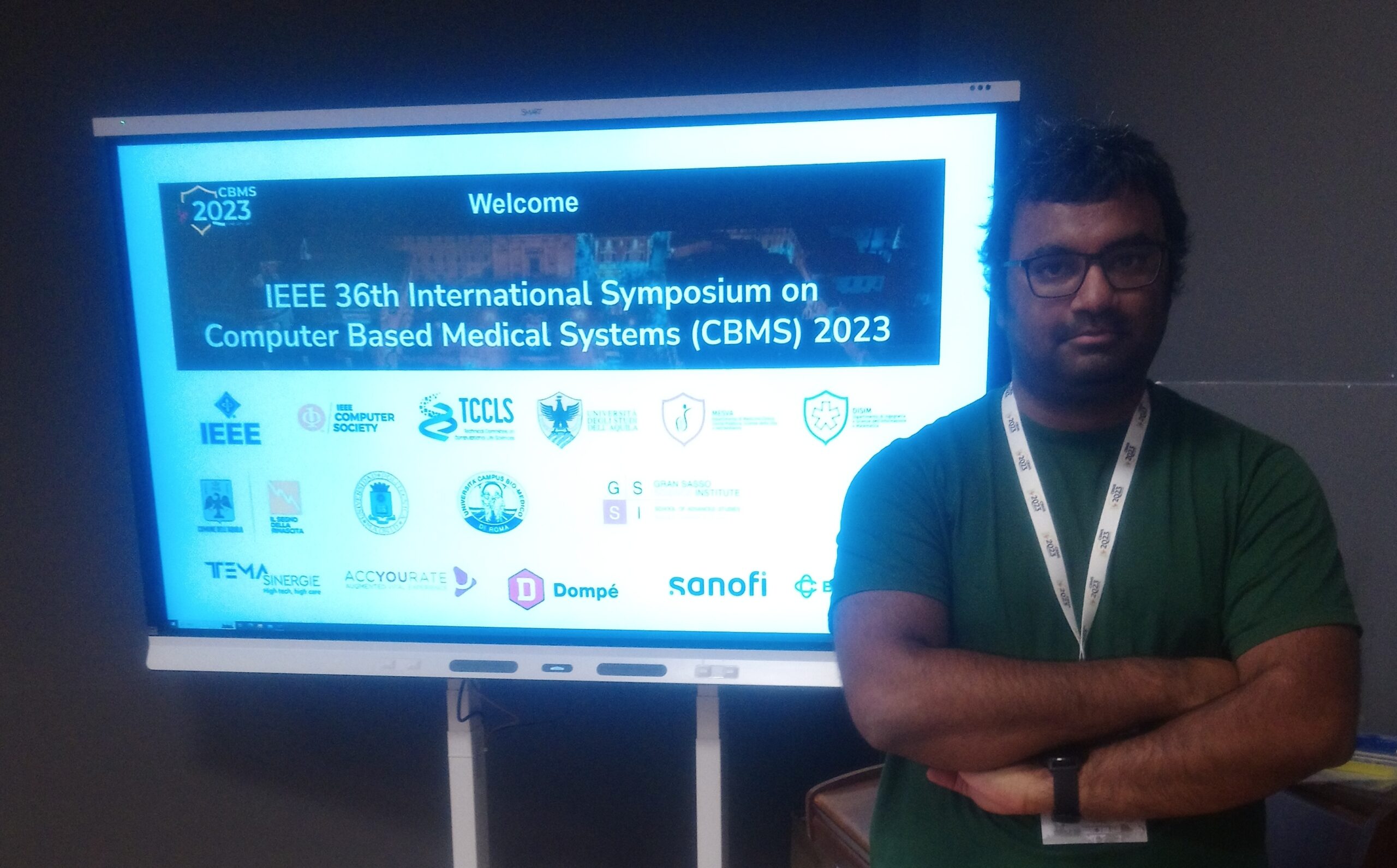

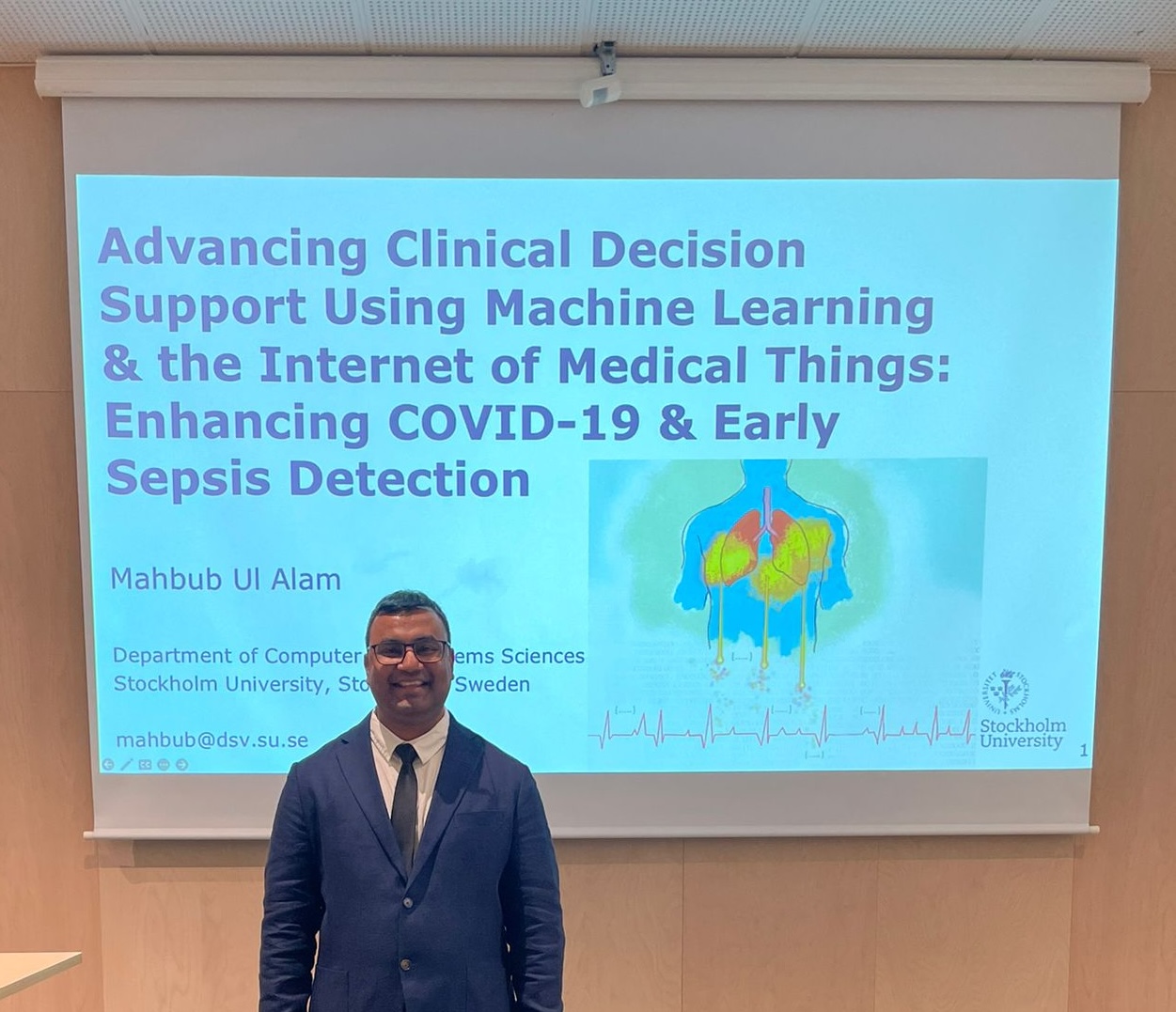

My journey began with computational linguistics at the University of Stuttgart, Germany, and led to deep dives into AI and data science at Stockholm University. My doctoral work is aimed at pushing the boundaries of clinical decision support through machine learning and the Internet of Medical Things (IoMT), with a focus on improving the detection of COVID-19 and early sepsis.
The path I’ve traveled blends my academic background in computational linguistics with practical software engineering skills honed at Samsung Research. This blend has enabled me to contribute effectively to healthcare AI, as acknowledged by the best paper awards I’m honored to have received. I find the convergence of natural language processing (NLP) and healthcare AI especially compelling.
Looking ahead, my vision is to utilize generative AI for example large language models (LLMs), and AI agents to create scalable, remote, and cost-effective healthcare systems. These systems could be non-invasive and align with various language technologies and a patient-centric approach to healthcare.
Described by my peers as friendly, supportive, and humble, I try my best to bring these traits to every team I’m part of. Driven by a desire to explore the frontiers of generative AI, NLP, and healthcare AI, I am committed to developing intelligent, compassionate, and practical solutions in these dynamic fields.
If you’re interested in collaboration, discussion, or providing guidance, I’m open to connecting. Please reach out on LinkedIn (https://www.linkedin.com/in/anondo).
Together, we can harness AI’s vast potential to create a healthier world for all.
Thank you for taking the time to read about me!
Let all of us prosper together!
Doctoral Thesis
Abstract
This thesis presents a critical examination of the positive impact of Machine Learning (ML) and the Internet of Medical Things (IoMT) for advancing the Clinical Decision Support System (CDSS) in the context of COVID-19 and early sepsis detection. (click to read more..)
It emphasizes the transition towards patient-centric healthcare systems, which necessitate personalized and participatory care—a transition that could be facilitated by these emerging fields. The thesis accentuates how IoMT could serve as a robust platform for data aggregation, analysis, and transmission, which could empower healthcare providers to deliver more effective care. The COVID-19 pandemic has particularly stressed the importance of such patient-centric systems for remote patient monitoring and disease management.
The integration of ML-driven CDSSs with IoMT is viewed as an extremely important step in healthcare systems that could offer real-time decision-making support and enhance patient health outcomes. The thesis investigates ML’s capability to analyze complex medical datasets, identify patterns and correlations, and adapt to changing conditions, thereby enhancing its predictive capabilities. It specifically focuses on the development of IoMT-based CDSSs for COVID-19 and early sepsis detection, using advanced ML methods and medical data.
Key issues addressed cover data annotation scarcity, data sparsity, and data heterogeneity, along with the aspects of security, privacy, and accessibility. The thesis also intends to enhance the interpretability of ML prediction model-based CDSSs. Ethical considerations are prioritized to ensure adherence to the highest standards.
The thesis demonstrates the potential and efficacy of combining ML with IoMT to enhance CDSSs by emphasizing the importance of model interpretability, system compatibility, and the integration of multimodal medical data for an effective CDSS.
Overall, this thesis makes a significant contribution to the fields of ML and IoMT in healthcare, featuring their combined potential to enhance CDSSs, particularly in the areas of COVID-19 and early sepsis detection.
The thesis hopes to enhance understanding among medical stakeholders and acknowledges the need for continuous development in this sector.
Keywords
Internet of Medical Things, Patient-Centric Healthcare, Clinical Decision Support System, … (click to read more…)
Predictive Modeling in Healthcare, Health Informatics, Healthcare analytics, COVID-19, Sepsis, COVID-19 Detection, Early Sepsis Detection, Lung Segmentation Detection, Medical Data Annotation Scarcity, Medical Data Sparsity, Medical Data Heterogeneity, Medical Data Security & Privacy, Practical Usability Enhancement, Low-End Device Adaptability, Medical Significance, Interpretability, Visualization, LIME, SHAP, Grad-CAM, LRP, Electronic Health Records, Thermal Image, Tabular Medical Data, Chest X-ray, Machine Learning, Deep Learning, Federated Learning, Semi-Supervised Machine Learning, Multi-Task Learning, Transfer Learning, Multi-Modality, Natural Language Processing, ClinicalBERT, GAN.
You can reach my other profile pages by clicking on the image(s) here,


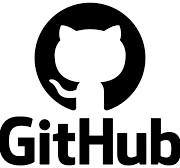
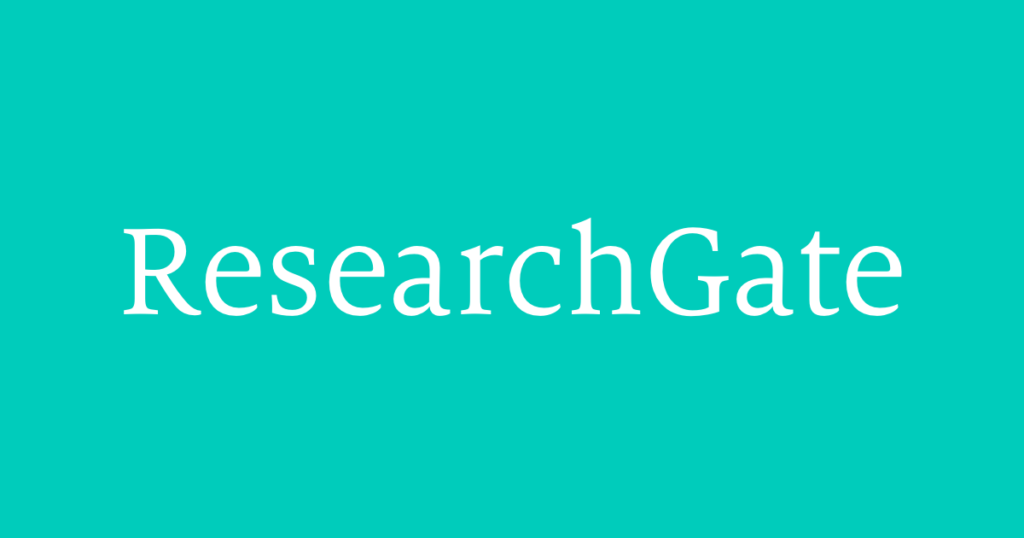


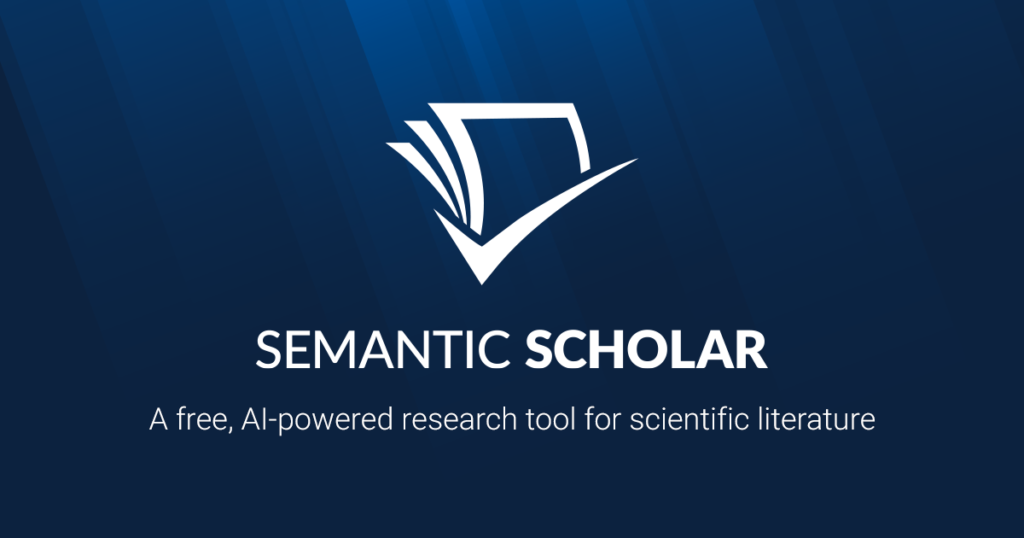


- Awards
- Contact
- Gratitude
- News
- Posts
- Presentation Resources: Slides, Poster, Video & Demo
- Publications
- SHAMSUL Demo App
- Teaching
